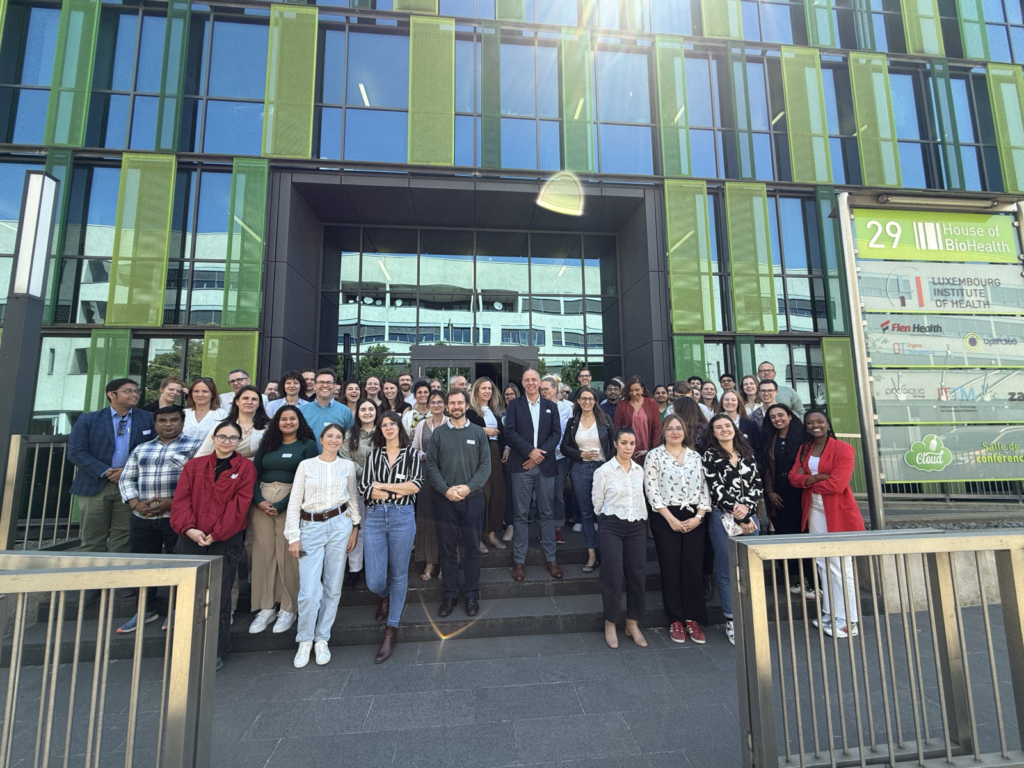News
100.7 Radio Interview Discusses Increasing Allergy Rates and Possible Causes

In a recent interview on Radio 100.7, Dr Annette Kuehn and Dr Christiane Hilger, allergy experts from the Molecular & Translational Allergology Group in the Dept. of Infection & Immunity, shed light on the increasing prevalence of allergies and their potential causes.
According to Drs Hilger & Kuehn, food allergies are on the rise, with milk, eggs, wheat, soy, meat, and nuts being the most common allergen sources. A recent population-based study conducted by the Molecular & Translational Allergology Group at the LIH, in close collaboration with Drs Ruiz & Fagherazzi of the Dept. of Precision Health, showed that over 40% of adults in Luxembourg reported a physician-diagnosed allergy, which is high, but correlates with the EU average.
Dr Hilger noted in the interview that there have been three allergy waves over the past century, hay fever, paediatric asthma, and food allergies, in that order. She explained that certain factors may be contributing to the increase in allergies, such as high hygiene standards, changes in agricultural techniques, climate change, air pollution, and the increased consumption of processed foods.
The experts also discussed the importance of early exposure to nature, as children who grow up on farms have fewer allergy issues than city kids. Dr Kuehn explained that when it comes to detecting allergies, it is essential to keep track of the symptoms, their intensity and prevalence, and in which context they occur. She states that if more than one symptom occurs after eating something, it may be anaphylaxis, a severe allergic reaction that needs immediate medical attention.
In terms of the most common allergy symptoms, Dr Hilger distinguished between respiratory allergies, which include itchiness, sneezing, stinging eyes, and trouble breathing, and food allergies, which include itching or stinging in the mouth, stomach pain, diarrhoea, and often skin problems. Both allergy types can escalate into asthma or anaphylaxis, and moderate to severe allergy sufferers should seek medical attention.
The second part of the interview focused on whether or not processed foods could be one of the causes of increasing food allergies. Dr Hilger suggested that this is a standing thesis, but more research has to be done to determine the consequences of substances used in food. The experts advised that all ingredients, including those in cosmetics and other products, should be tested to see if they disrupt the epithelial barrier. These barriers in the skin, gut, and lungs provide physical protection from environmental challenges. If they are disrupted, allergens and other molecules can enter the body more easily, eliciting immune responses and triggering chronic inflammatory diseases.
Dr Kuehn also differentiated between intolerances and allergies, noting that intolerances do not involve the immune system, and a person with a specific intolerance may just be lacking an enzyme to break down a specific substance. Allergy symptoms involve changes in the immune system changes, and in some cases, can go away as the immune system develops and changes.
In conclusion, the experts emphasized the importance of seeking medical attention when symptoms occur and increasing awareness of allergies and their potential causes. They also called for more research into the long-term effects of substances used in food and other products.
You can listen to the interview online in Luxembourgish and German.







